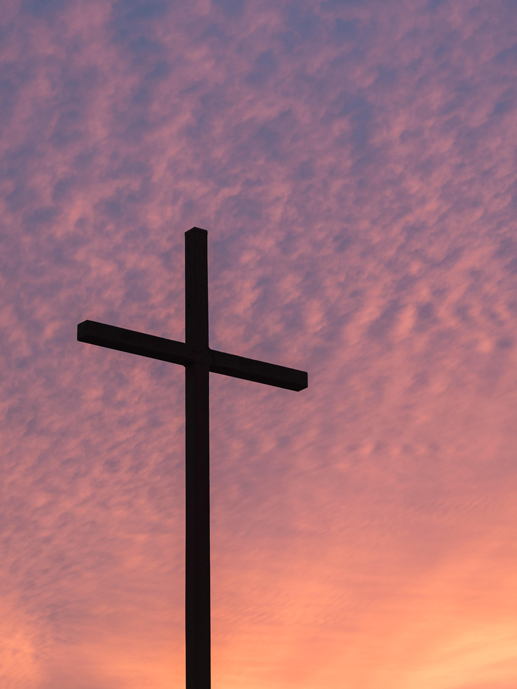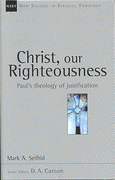Many churches in the United States are now faced with a question that used to be merely hypothetical: If the government tries to close the church, should we stay open anyways? Few anticipated this question would become a pressing issue as a result of a virus, but here we are. When the government requests or requires the church to close in the midst of this pandemic, is the church obligated to obey?
The issue that needs to be resolved is government authority. Why does the government have authority over its citizens and others who live within its borders? Some have suggested the government has authority to carry out the duty of protecting life. Because the government has the responsibility to protect human life, the church is obligated to obey a reasonable government order to close the church when the reason for the order is the preservation of life and the order applies equally to all other institutions in society. However, this reasoning is fundamentally flawed.
The government has the biblical responsibility to protect the rights of its citizens. This responsibility means the government must do more than protect life, and it also limits what government can do to protect life because government must regard the rights of its citizens as of utmost importance. Government’s obligation to protect rights is explained in Romans 13. Paul teaches that the responsibility of the government is to bring punishment upon those who do evil. Doing evil in the context of Scripture is violating the commands of God (1 John 3:4). The role of the government is not to punish every act of evil but only those acts of evil that infringe the rights of another. For example, the government should not prosecute people for coveting. Coveting is a sin, but it is not a sin that deprives another person of their rights unless it is acted upon externally in the form of theft. The government should, however, prosecute thieves because stealing deprives another person of their property rights. If God has given something to someone, another person violates his right to own it if they take it by fraud or by force. Government should punish someone who has deprived others of their property rights, and the punishment should be severe enough to dissuade most would be thieves from violating other people’s rights.
In the case of murderers, the government has the responsibility to protect its citizens’ rights by executing people who willfully violate another person’s right not to have their life unjustly taken. The government, however, is not responsible to ensure that everyone avoids death as long as possible. For example, the government does not have the right to outlaw pizza because consuming too much pizza might clog your arteries and result in a heart attack. The government does not have the authority to regulate how much sugar a citizen eats to make sure no one dies from diabetes. Eating too much pizza or drinking too much soda do not infringe upon another person’s rights, and so the government should not meddle in these types of actions.
The government only has the authority to make laws that incentivize obedience to God’s commands and criminalize disobedience to God’s commands within society. To enforce just laws, the government has the authority to levy taxes, which Christians should happily pay. The government, then, does not have the authority to close the church in the name of protecting life because that is not the responsibility of government. Government has been established by God to protect rights.
Another reason this argument fails is because the government never has authority over the church in its functions as the church. The government has no authority over the gathering of the church, including when, where, or how many gather. The government has no authority over the teaching and doctrine of the church, the government of the church, the administration of the sacraments, or the church’s worship. This might be proven in a number of ways, including the many New Testament references to Christ as the head of the church and the declaration that Jesus is Lord. Peter also assumes this in 1 Peter 2:15 when he tells persecuted believers to do what is right. He exhorts them to righteous behavior in the context of obeying the government. The believer is not blindly to assume that what the government requires is what is right, especially if the government begins to meddle with the church and its practices. Throughout Scripture we are told what is right: to gather together for worship (Heb 10:24-25), to encourage one another (1 Thess 5:11), to sing to one another (Eph 5:19), to exhort one another (Col 3:16), to love one another (1 Thess 4:9), to greet one another with holy affection (Rom 16:16), to partake of the Lord’s Table with one another (1 Cor 11:33), to use our gifts to serve one another (Gal 5:13; 1 Pet 4:10), and many other commands (Rom 12:10, 16; 14:19; 15:7; Gal 6:2; Eph 4:2, 25, 32; Phil 2:3; Col 3:13; 1 Thess 4:18; 5:13; Heb 3:13; James 5:9, 16; 1 Pet 1:22; 4:8; 5:5; 1 John 3:11, 23; 4:7, 11; 2 John 5). If the government forbids the church from doing what is right in the context of obeying these many “one another” commands and carrying out the divine mandate of worship, the church has no obligation whatsoever to obey such unjust laws. To disobey these laws would be obedience to Christ, who is the Lord of all and head of the church.
Someone might object that I am overlooking the command to love your neighbor. They say that by gathering together we are not loving our believing neighbor because we are risking exposing them to a deadly virus. Furthermore, we are not loving our unsaved neighbor because we are giving a bad witness by doing something that is viewed reprehensibly by the world. This objection seems powerful at a superficial level, but it does not withstand biblical scrutiny.
What does it mean to love your neighbor? Many people have assumed they understand what this command means in the context of the COVID-19 crisis. They insist that to love your neighbor is to stay home or to wear a mask. But to love your neighbor is not defined by the governing authorities or the CDC. Loving your neighbor is defined by the Word of God. Loving your neighbor is treating your neighbor in accordance with God’s commands, the ones listed above, like encouraging one another, singing to one another, greeting one another with holy affection, caring for one another (including the sick), stirring one another up to love and good deeds, and even laying down our lives for one another if necessary. A virus like COVID-19 does not require or even permit us to set aside the vast majority of God’s commands because there is a small chance we might unknowingly infect someone with a virus. The call to love one another is not a call to avoid one another (unless you know you are sick) but to engage with one another according to God’s commands.
When believers love one another in this way, we present a glorious and beautiful testimony to the watching world. We demonstrate the love of Christ, which values what is eternal more than what is temporary. The world may despise us as reckless, unloving, or as wanting grandma to die. But the world doesn’t submit itself to the law of God (Rom 8:7), and they find obedience to God to be an aroma of death to death (2 Cor 2:14-16). The fact that the world opposes our obedience to God’s commands does not invalidate our witness; it establishes and emboldens it (John 16:1-4). Whenever the church has stood up to ungodly rulers and been willing to suffer the consequences of such a stand, God has blessed the church and the gospel has gone forth with greater power (2 Tim 2:9).
Disobeying the government’s mandates concerning COVID-19 and gatherings is risky business. It’s risky because in some states it could result in fines or other unjust consequences inflicted by ungodly leaders. It’s also risky because COVID-19 is real, and it is dangerous to certain demographics in our nation and in our churches. How a particular individual obeys Christ in choosing to gather or to stay home and watch church online falls into an issue of individual conscience according to Romans 14. For some vulnerable people, staying away from large gatherings may be a wise and prudent decision, done with a desire to be pleasing to the Lord. However, for the church as a whole, closing the doors and forsaking the assembly of the saints because of a government mandate is to obey men rather than God. Christ is the head of the church, and the government has no legitimate authority to regulate the worship of Christ’s assembled bride. Closing the church because it is risky to meet together will put the members of the church who are able and willing to gather at a much greater risk, the risk of disobeying most of the New Testament commands concerning how we are called to love one another in the context of the local church.
The church of Jesus Christ cannot in good conscience keep its doors closed because staying closed is far too risky.
Tags: authority Church & Culture coronavirus covid-19 government persecution worship



